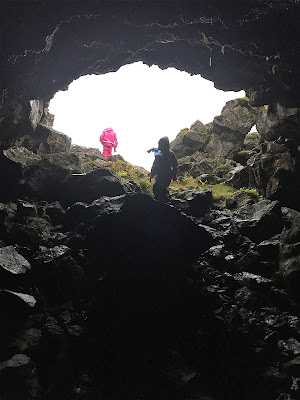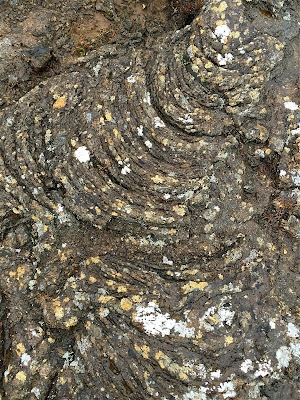
Over the past few years I've had the opportunity to travel the world in my adult disguise as Teacher Tom. And during my adventures, I've played with young children in dozens of countries on every continent, and you know what? No matter how different the geography or culture or language or economic conditions or political situation, the kids are all the same.
Of course, of course, they are each unique, fully-formed human beings, destined to live a life that has never before been lived, but I've never run across a single one who isn't compelled by
the universal human urge to learn about their world through their play. I'm currently traveling in Australia and at each stop along the way, when young children are present, I see them first eying me, sizing me up, then one after another they begin to poke at me, show off for me, stand closer to me, tug at me, smile at me, scowl at me, all of which I recognize as the question, "What's this guy all about?" Sometimes their adults step between us, insisting, "Say hello to Teacher Tom," or "Don't bother Teacher Tom," but when left to explore me, this new element in their world, we invariably wind up playing together.
As we play, they ask me questions, but not cautious ones adults ask me, like, "How was your flight?" or "Are you enjoying Australia?" No, their questions are of the more direct, non-verbal variety. A few nights ago, one five-year-old wanted to find out how I felt about having fists full of grass thrown at me. A two-year-old was curious about how I would respond to having a stick waved about in front of my face. A group of four-year-olds at one preschool were interested in discovering whether or not I enjoy being climbed on. And every young child I've ever met from every corner of the globe tries to learn whether we share a sense of humor or awe or adventure. They ask me, "Knock, knock?" They call out, "Look at what I can do!" They say, "Come with me!" and in my response they find answers to the questions they have about this strange man from a strange land who's been plopped down amongst them.

This is what the universal human instinct to learn looks like wherever I go. It's irrepressible, it's universal, it's manifest. The learning capacity of children at play has been demonstrated time and again through scientific enquiry. Yet despite this, only a very small number of our nations have seen clear to place play at the center of how they educate young children. And even those that have come to understand the primacy of play in the early years, such as New Zealand or the Scandinavian countries, play is systematically pushed to the side as children get older as if in our wisdom we can do better than the evolutionary process that has designed humans, and indeed all animals, to learn through play.
Those of us in early childhood talk about this phenomenon amongst ourselves all the time. In fact, usually that's why I've been invited to visit this or that nation: to sit around with like-minded professionals and talk to one another about how we do it, what we've learned, and to gripe about how the powers-that-be just don't get it. I don't believe there is anyone on earth with a more noble cause. We are in a very real sense defending childhood from the sticky fingers of those who would steal it for their own nefarious devices.
Childhood is the right of every child and at the core of childhood is the right to play.
I keep waiting for things to change, poking my head out of the little bubble in which I live every now and then to see if it has, only to find myself disappointed. I shout a few things here on the blog or from the podium at a conference or to my wife when my frustrations get too much for me to save them for a more appropriate time, but then I go back to work tending my little garden of play-based learning.
It's not enough. It's time for a revolution. I have recently hooked my cart up to
the Play Iceland movement, about which I've written before and about which you will be hearing more here in the coming months. We are educators from Europe, North America, and Australia who are committed to taking the next step. It is time that we stop just talking to one another and turn to stand shoulder-to-shoulder in an attempt to affect real, concrete public policy changes that place play at the center of education. There is so much to do, so many things that need to change, that the task seems impossible, but as Henry Ford famously pointed out, "Nothing is particularly hard if you divide it into small jobs," so that's what we're going to do, one public policy measure at a time.

We're beginning with the simple notion that every child deserves a childhood and that "academic" instruction has no place in the lives of children under seven. Of course, there's more to it than that, but this is the "small job" we've set for ourselves and I'm writing today to ask you to join us. It's going to be uncomfortable for many of us to become "salespeople," but that's what the children of the world need from us.
I have no idea what form this revolution will take, I only know that it has to start somewhere, so why not here? Play Iceland Seattle (my home town) is taking place the week of October 9, so consider this your invitation to join us if not in person, at least in spirit. In the coming months we will be developing public policy statements and other materials that you can use to start selling this idea in your communities. Plans are currently afoot for Play Iceland gatherings in Italy and Australia and, of course, Iceland itself. We are turning outward, shoulder-to-shoulder.
Here is the Play Iceland Facebook page.
Here is the Play Iceland website.
Please join us. The children need you.
"Never doubt that a small group of thoughtful, committed citizens can change the world; indeed, it's the only thing that ever has." ~Margaret Mead





